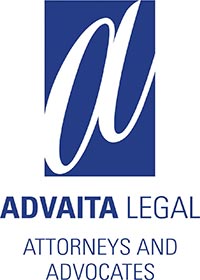With the goods and services tax (GST) well into its second year, the government now wants to focus its resources and enforcement machinery on the collection of GST rather than getting bogged down by disputes from the pre-GST era. The 2019-20 budget has introduced the Legacy Dispute Resolution Scheme, 2019 (LDRS), offering amnesty (without using the word amnesty) from tax demands (up to 70%) under pre-GST tax laws, levied and collected by the central government as well as interest, penalty and prosecution liability arising from such demands.

Partner
Advaita Legal
The purpose behind this scheme is to unlock up to ₹2.75 trillion (US$39 billion) held up by litigation pertaining to pre-GST indirect taxes. LDRS covers all disputes under pre-GST federal taxes such as central excise, service tax and specified cesses (local and specialized levies), including education cess, Krishi Kalyan cess and Swachh Bharat cess, except for the following categories of taxpayers or disputes:
- Where a show cause notice or appeal has been heard finally on or before 30 June 2019.
- Where a person has been convicted for any offence pertaining to the tax dispute.
- Where a show cause notice has been issued for an erroneous refund or refund.
- Where cases of enquiry, investigation or audit have arisen in which the amount of duty has not been quantified on or before 30 June 2019 or voluntary disclosure has not been made after the audit or investigation.
- Where a person making a voluntary disclosure, having filed a return under any of the indirect tax laws covered under LDRS, and having accepted weak legal basis, may not acknowledge LDRS duty as payable without paying it.
Matters that are before a settlement commission. - Where a person seeks to make declarations with respect to petroleum and tobacco products.
Similar amnesty schemes have recently been introduced for state-level taxes (like value added tax, entry tax, professional tax, etc.) by various state governments.LDRS can offer significant relief for eligible taxpayers faced with tax demands that are tenable or have a strong legal basis as LDRS can not only offer relief of up to 70% of such tax demands but also relief from any further duty, interest or penalty arising from such demands as well as relief from subsequent prosecution.
You must be a
subscribersubscribersubscribersubscriber
to read this content, please
subscribesubscribesubscribesubscribe
today.
For group subscribers, please click here to access.
Interested in group subscription? Please contact us.
你需要登录去解锁本文内容。欢迎注册账号。如果想阅读月刊所有文章,欢迎成为我们的订阅会员成为我们的订阅会员。
Sudipta Bhattacharjee is a partner and Onkar Sharma is a managing associate at Advaita Legal.

Advaita Legal
2nd Floor, Block F, International Trade Tower
Nehru Place, New Delhi – 1110 019, India
Lodha Excelus, 1st Floor
Apollo Mills Compound, NM Joshi Marg
Mahalakshmi, Mumbai – 400 011, India
Contact details
New Delhi | Tel: +91 11 3323 2700
Mumbai | Tel: +91 22 3989 6000
Email: monalidutta@advaitalegal.com


























